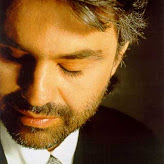They came. My soldiers, they have brought him. He was bleeding, he was hurt. I remained in my throne, watching the whole scene –quite pleased, I must say-. Like him, they have brought to me many men. The dynamic was easy: They tell me his crimes, I judge, and then condemn. In the little time I had been ruling here, I got easily adapted to the luxurious and wealthy way of living of The Law. I was the law, and what I said, it was done. I was not the Ceasar, but when it came to Judea, the last word was mine.
My soldiers had brought me back this man, whom I had sent to Herod. When he had reached my throne, I saw his eyes. Those eyes showed pain, I could tell, and yet they were not begging for mercy. I took a deep breath, and stood up. To the crowd, I said: “People! You have brought me this man, and you say he is a criminal. I interrogated him before, and I found not a crime that deserves death. I shall punish him before your eyes, and he may go.”
“Crucify him!” shouted the crowd. That, I could not do. This man, I knew well, who was completely innocent, I could not crucify. He used to be quite popular; to free him, I had to make them choose him. “Bring Barabbas”, I whispered to my guards. They left, while I looked at the man in front of me. Meanwhile, the crowd kept shouting for his crucifixion.
“Why do they hate you this much?” I asked him. And in response, he only said “They don’t. They only want me dead”. “Then, why?” I asked again. “Because this is how it has to be”.
They brought Barabbas, who was captured after stealing and murdering. And I said to the crowd: “You may choose! Who shall I set free, Barabbas the murderer or Jesus of Nazareth?” To my surprise, they chose Barabbas. “Do you really prefer this murderer, to the man who only proclaimed himself as King of Jews?” They did. And I tried to persuade them once, twice, and even a third time. They only kept shouting louder and louder, asking me to crucify this man.
In the end, I could do nothing. I looked to the man, and he did nothing. He didn’t beg. He didn’t cry. He didn’t even talk. If he would do nothing, then I should not either. “Crucify him, then! I am innocent of this man's blood!” And my guards took him away.
He looked at me, Jesus looked at me. And in those eyes there was something wrong. In the eyes of the man who was being taken away, there was… gratitude; and maybe tears. He was grateful.
Jesus of Nazareth: He was no man. When he left, I felt wrong. I felt uneasy, then depressed, and finally empty. My head began to get filled with ideas of suicide. I did not commit it; but little I knew that in that same moment, a man far away was killing himself for something very alike.
My soldiers had brought me back this man, whom I had sent to Herod. When he had reached my throne, I saw his eyes. Those eyes showed pain, I could tell, and yet they were not begging for mercy. I took a deep breath, and stood up. To the crowd, I said: “People! You have brought me this man, and you say he is a criminal. I interrogated him before, and I found not a crime that deserves death. I shall punish him before your eyes, and he may go.”
“Crucify him!” shouted the crowd. That, I could not do. This man, I knew well, who was completely innocent, I could not crucify. He used to be quite popular; to free him, I had to make them choose him. “Bring Barabbas”, I whispered to my guards. They left, while I looked at the man in front of me. Meanwhile, the crowd kept shouting for his crucifixion.
“Why do they hate you this much?” I asked him. And in response, he only said “They don’t. They only want me dead”. “Then, why?” I asked again. “Because this is how it has to be”.
They brought Barabbas, who was captured after stealing and murdering. And I said to the crowd: “You may choose! Who shall I set free, Barabbas the murderer or Jesus of Nazareth?” To my surprise, they chose Barabbas. “Do you really prefer this murderer, to the man who only proclaimed himself as King of Jews?” They did. And I tried to persuade them once, twice, and even a third time. They only kept shouting louder and louder, asking me to crucify this man.
In the end, I could do nothing. I looked to the man, and he did nothing. He didn’t beg. He didn’t cry. He didn’t even talk. If he would do nothing, then I should not either. “Crucify him, then! I am innocent of this man's blood!” And my guards took him away.
He looked at me, Jesus looked at me. And in those eyes there was something wrong. In the eyes of the man who was being taken away, there was… gratitude; and maybe tears. He was grateful.
Jesus of Nazareth: He was no man. When he left, I felt wrong. I felt uneasy, then depressed, and finally empty. My head began to get filled with ideas of suicide. I did not commit it; but little I knew that in that same moment, a man far away was killing himself for something very alike.




me gusto mucho......
me hizo sentir varias cosas, no se remontadas a un pasado quizás nostalgico